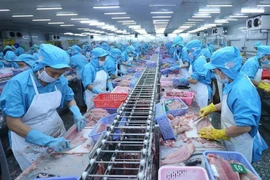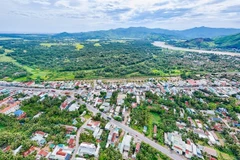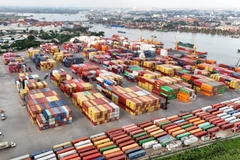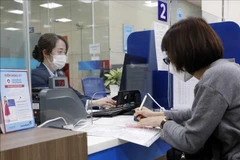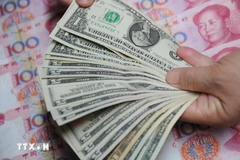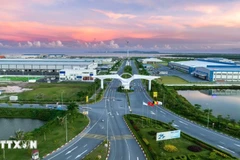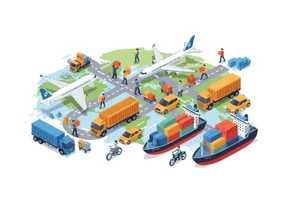Hanoi (VNA) – The World Bank (WB) in Vietnam has projected that Vietnam’s economy will grow 6.8% in 2025 before easing slightly to 6.5% in 2026 in its latest “Taking Stock” report released on March 12, signaling the country’s resilience through global headwinds.
WB experts credited Vietnam’s strong 2024 performance to a rebound in exports, propelled by heightened global appetite for tech goods such as semiconductors, smartphones, and electronics. Yet, they cautioned that this momentum faces headwinds. A slower-than-expected global recovery, coupled with trade disruptions involving major trade partners like China and the US, threatens to destabilise Vietnam’s export-driven growth. Escalating geopolitical tensions, including conflicts in Europe and the Middle East, and possible shifts in trade policies, such as tariffs or sanctions, further cloud the outlook, necessitating heightened preparedness.
Even so, the report projects steady foreign direct investment (FDI), with annual disbursements holding firm at around 25 billion USD. This stability reflects Vietnam’s appeal to global investors, drawn by its affordable labour, and strategic trade pacts like the EU-Vietnam Free Trade Agreement. Also, ongoing infrastructure upgrades in roads, ports, and industrial zones add further appeal. Multinational firms, particularly in manufacturing and hi-tech industries, continue to see Vietnam as a prime investment destination.
Domestically, growth is set to gain momentum from multiple fronts. Increased public investment and a recovering real estate market, aided by faster land clearance, promise to stimulate demand and partially cushion external risks. For instance, recent efforts to expedite housing and commercial developments in cities like Hanoi and Ho Chi Minh City signal a rebound from past slowdowns. Though export growth may soften in 2025 and taper further in 2026 due to weaker demand from major markets like China and the US, domestic activity and services are set to take up the slack, with real estate serving as the linchpin.
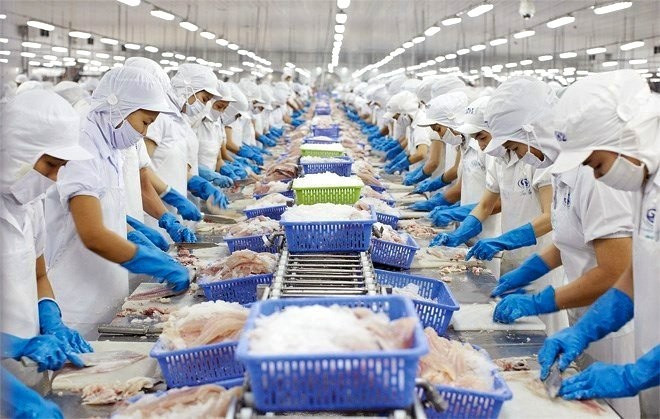
According to the WB experts, Vietnam’s economic openness, a boon for growth, also leaves it exposed to risks like global downturns, shifting trade policies and trade fragmentation. They warned that these factors could erode exports of manufactured goods, dampen industrial output, and hinder broader economic gains if unaddressed effectively.
To mitigate this, public investment stands out as a vital engine, boosting aggregate demand and sustaining expansion. A reinvigorated real estate market, supported by streamlined project approvals, will amplify these efforts.
“Vietnam’s economy is on track for strong growth over the next two years, yet rising uncertainties call for leveraging fiscal space,” said Mariam J. Sherman, WB Country Director for Vietnam, Cambodia, and Laos. “Public investment in urban infrastructure, transportation, and energy will be vital, provided the Government scales up investment and ensure efficient spending”.

The report also flags financial sector vulnerabilities, urging banks to bolster capital adequacy ratios and institutional frameworks. The State Bank of Vietnam (SBV) is encouraged to intensify scrutiny, tackling risks from corporate-bank ties and preempting crises with timely action. Strengthening energy resilience and pushing structural reforms are equally pressing to secure Vietnam’s economic rise amid global flux./.


